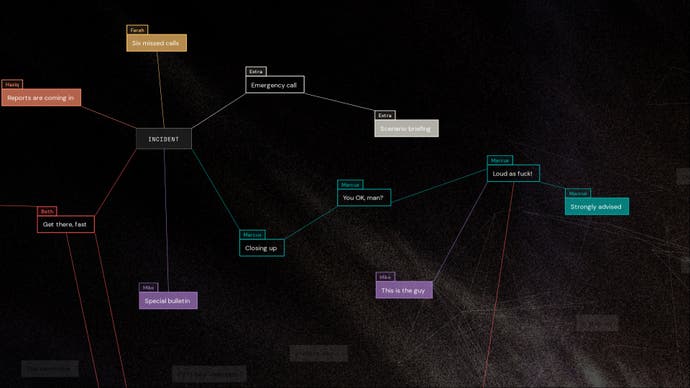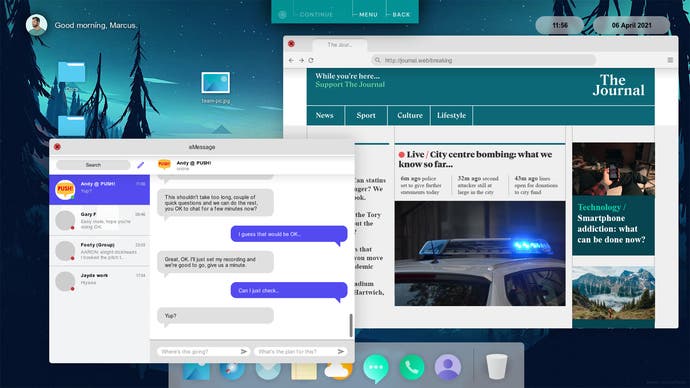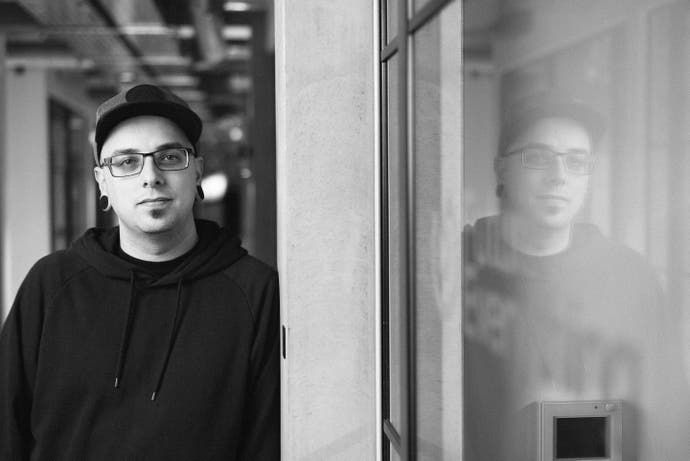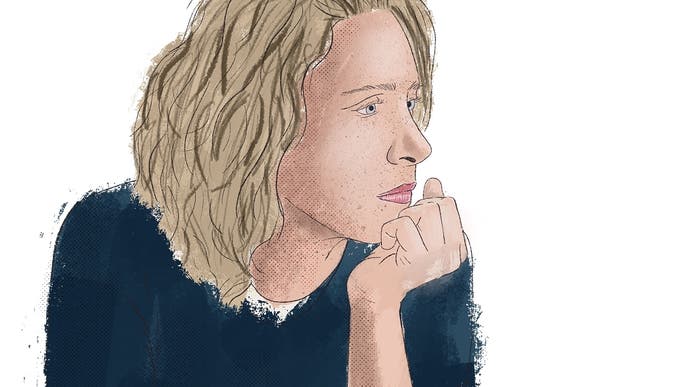Understanding Closed Hands, a game about reactions to a terrible event
"It exists to challenge."
Closed Hands is a game about a fictional terror attack, a bomb, and about how the lives of five unconnected strangers become connected by it. But it's also about the society they live in. It's about the years before and the years after. It's about context and about how they got to that point in the first place. Closed Hands is a game about understanding.
And to understand it, you need to understand a bit about where it comes from. Closed Hands is created by Dan Hett, a man who lost his brother in the Manchester arena bombing in 2017. This game is the culmination of years of many smaller projects and knee-jerk experimentation as he processed why.
But it's not anger that fuels this game, it's questions. Questions Hett sought to answer as he became swept up in the aftermath of the event, speaking at schools, speaking to the press, and finding himself in the public eye. Closed Hands, in a sense, represents his answers, and so much of his personal experience can be felt across the game.
The game begins with five rectangular blocks surrounding an invisible centre, like a spider's web without a spider on. The missing middle is the bomb, the event from which all events spiral, but it's not dwelled upon. What's important are the stories around it, the stories of the five people: a journalist covering the event; a shop worker turned eye-witness; a racist middle-aged man; a lady working for police intelligence; and the father of the boy linked with the terror attack.


Each time you click one, a short scene plays out, told in text but in some imaginative ways. And when it's finished, one or two more appear elsewhere, with a line linking them to the scene just played. The timeline jumps around, not necessarily in order. And while the scenes are light on interactivity, sometimes there's a meaningful choice to make. It's enough to give you some agency and to pull you deeper in. But the real point of the stories is understanding why the people did what they did, and why they go on to do what they do.
How did Mike end up joining a facist group? Will eye-witness Marcus Bashir find the courage to deal with overnight fame and all the scrutiny that comes with it? What angle will reporter Beth take? Will intelligence agent Farrah Noor find out who carried out the attack? And why - why is Hasiq's son Yasin implicated in it? Poignant questions that come with deep, nuanced answers, which are as much about the society we live in as the characters themselves.
"It's less about moving on and more about evolving"
Dan Hett
But there are alarm bells too, which sounded the moment I realised this was a story about a Muslim-linked terror attack. We do not need another story like this. And this is a fictional event, remember, albeit one clearly based on a real event.
I wasn't the only one who had misgivings about it. "I'll be honest," Umar Ditta, a writer on the game, tells me, "when Dan [Hett] first approached me about the project, I was, 'Okay, here we go.'
"But when I caught up on the reading of the project, and sort of understood the background of Dan, I understood that his place or his intent for this project came from the right place, and it didn't feel exploitative."
Umar Ditta was sought out by Dan Hett to help to bring authenticity to characters with backgrounds different to his own. Hett also sought Sharan Dhaliwal's help though she had to leave for other work commitments fairly early on. But Ditta stayed around, and fleshed out the entire Hasiq storyline, being of similar Pakistani background to him. And the result is a touchable feeling of reality, of warm homes and snacks and tea, and a fundamental understanding of what it's like to live with cultural duality in the UK.
Ditta would also feature in a Closed Hands panel on Muslim representation in games, which is well worth a watch.
Ditta's involvement, and Dhaliwal's fleeting presence, bring a sense of credibility to the project over all. A reassurance that Dan Hett tried to get proper, positive representation in his game. But I must admit, I still squirm at the plot. Some of that, though, is intended. "It's a challenging piece of work," Hett says, "and it exists to challenge."
It's an experience that would work powerfully on a teenage audience in schools, and you can feel this sentiment in the game. "I think young people are underestimated," game character Marcus Bashir (the eye-witness) says at one point, visiting a school and talking openly to the students there, like Hett used to do. In so many ways, Marcus is Hett, and he's right.
Hett says: "The idea that somebody would play through this and then re-examine things a little bit more critically, or just pause for a moment before hitting that tweet button, or whatever they do, or having that conversation over the table... [If it] can just throw a bit more light on this stuff for people then it will have succeeded."

Ditta adds: "Hopefully this should, at the very least, add another layer to their understanding of what happens when they turn over to Sky, BBC or whatever and see a tragedy like this happen where, just as you mentioned before, it's not black and white."
Closed Hands is also a kind of closure for Dan Hett. It's been four years since the events in Manchester, and now this game is complete, he can begin to leave them behind, as much as he humanly can. "It's less about moving on and more about evolving, I guess," he says. "I've answered a lot of my own questions in making this work, and speaking to people doing the research, and working with a team of people who are helping me do this thing. There's really always value in doing this stuff, in personal terms.
"I've been asked recently if I would make any more games about this stuff specifically, and the answer is probably not," he adds. "I think I've explored everything I wanted to do." But the idea of telling complex human stories he absolutely will continue with, though not, for the moment, in games. He has pitched an ambitious television idea to Sky, and he's planning a novel.
What's next for Hett we'll have to wait and see. But for now there's Closed Hands, a game about you, a game about me, a game about us all. What, I wonder, will it show you?
Quick note for transparency to say that Dan Whitehead, a long-time Eurogamer contributor, was a key writer on Closed Hands.











